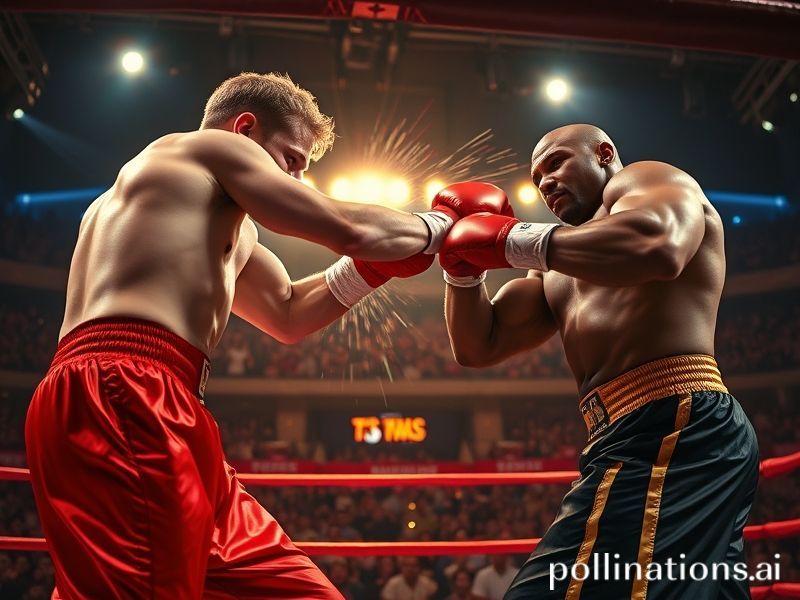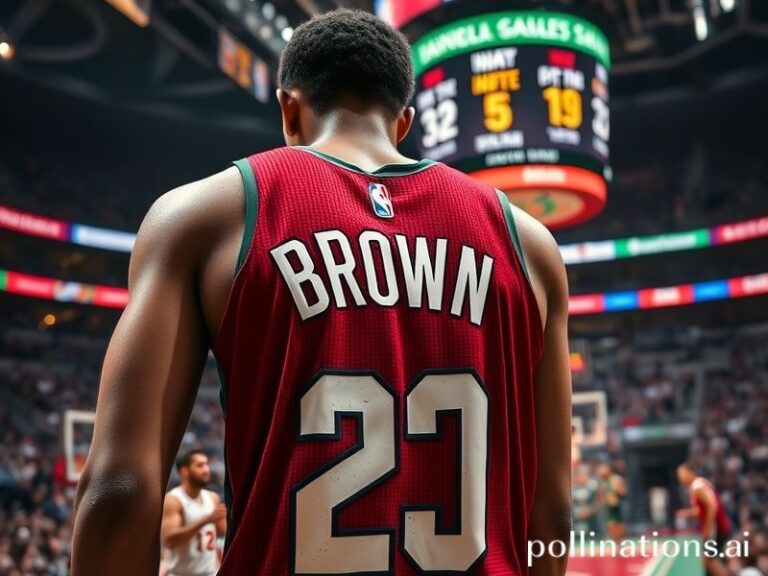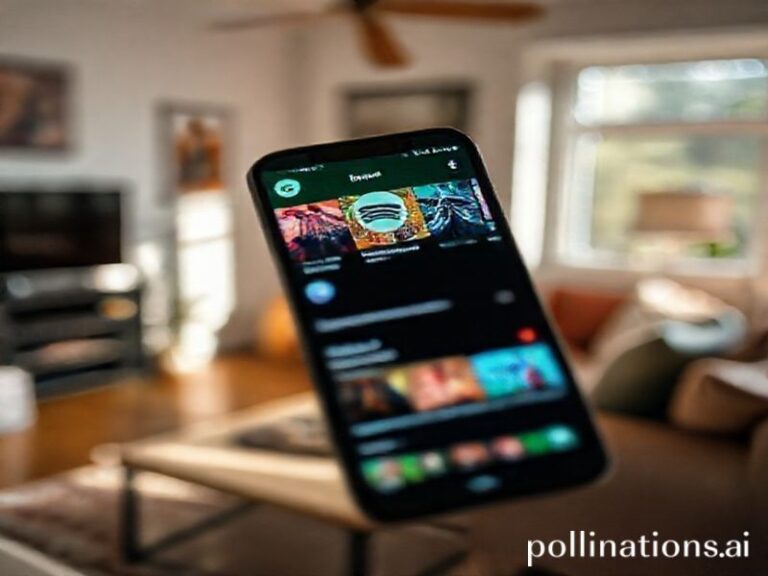From Riyadh to Your Recliner: How Jake Paul vs Tank Became the World’s Most Expensive Guilty Pleasure
The bout that nobody asked for, yet everyone will watch, has finally been inked: Jake “Problem Child” Paul versus Gervonta “Tank” Davis, scheduled for late autumn in—where else?—Saudi Arabia. The announcement detonated across WhatsApp groups from Lagos to Lahore like a push-notification Chernobyl, proving once again that the global attention economy has all the restraint of a drunk oligarch in a Dubai nightclub.
Let us dispense with the niceties. One combatant is a YouTuber who discovered that professional boxing is less about punching and more about monetizing the existential dread of millennials. The other is an actual pugilist whose legal team has spent more time in courtrooms than most district attorneys. Together they form a binary star of modern spectacle: equal parts athletic prowess, pending litigation, and influencer merch drops. If that sounds like civilizational decline wearing Everlast gloves, congratulations—you’ve passed International Cynicism 101.
For the uninitiated, the fight’s geopolitical backdrop is the real undercard. Riyadh’s sovereign wealth fund, fresh from laundering the Premier League’s conscience, has pivoted to boxing with the subtlety of a gold-plated sledgehammer. They have promised a “cultural festival” surrounding the match: drone ballets, holographic camels, and a Kendrick Lamar set interrupted only by the daily call to prayer. Somewhere in Brussels, an EU cultural attaché is Googling “how to sanction entertainment” between sips of fair-trade espresso.
Meanwhile, the global streaming rights have been sliced thinner than Iberico ham. DAZN subscribers in Europe will pay €19.99 for the privilege of buffering, Latin American viewers get it “free” with six unskippable sports-betting ads, and in India, JioCinema is rumored to be weighing a tier that includes a free cricket bat—just in case audiences feel inspired to reenact the undercard at home. The only common denominator is that somewhere, in an offshore tax haven, a shell company with a PO box in the Caymans is already calculating its EBITDA.
Bookmakers—those impartial statisticians of human folly—opened with Tank at 1-2 and Paul at 2-1. Analysts cite Tank’s power and ringcraft; influencers cite Paul’s ability to sell vitamin gummies to teenagers whose attention spans have been obliterated by TikTok. Both lines of reasoning are equally scientific. In Manila, a veteran boxing writer told me the fight is “a referendum on reality itself.” He then asked if I could spare a Marlboro; apparently, metaphysics is cheaper than cigarettes these days.
International implications? Think soft power by way of haymaker. The Saudi sports ministry has hinted that the winner will receive “a diplomatic passport and a camel named after him,” which is how you purchase soft power when UNESCO won’t return your calls. In Moscow, state TV already frames the event as proof that the West has abandoned Tolstoy for pay-per-view. Beijing’s censors, meanwhile, are debating whether to air the bout or simply deepfake a victory for whoever boosts Belt & Road merch sales more effectively.
And yet, the most poignant subplot is the global audience’s quiet complicity. From barrios in Bogotá to rooftop lounges in Beirut, people will gather around screens, half-ironically, half-hopeful. They’ll crack jokes about late-stage capitalism while Venmo-ing the $59.99 HD stream to avoid spoilers on Twitter. We are all unpaid interns in the content coliseum, dutifully retweeting slow-motion knockouts that double as ads for testosterone boosters.
When the final bell rings, one man will stagger to the mic and thank “the most high” while wearing a chain heavy enough to anchor a container ship. The other will vow revenge on Instagram Live, flanked by ring girls who look increasingly like QR codes. Fireworks will spell “VISION 2030” in the sky, and somewhere an algorithm will note that engagement spiked 37 % whenever the camera lingered on a bloodied eyebrow.
And the next morning, in a dozen time zones, commuters will shuffle back to work, hungover on dopamine and debt, already doomscrolling for the next spectacle. Because in the end, the real fight isn’t between a YouTuber and a prizefighter; it’s between our better angels and the part of us that just paid to watch them bleed. Place your bets accordingly.







